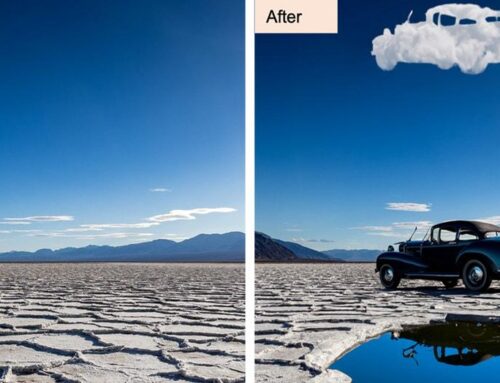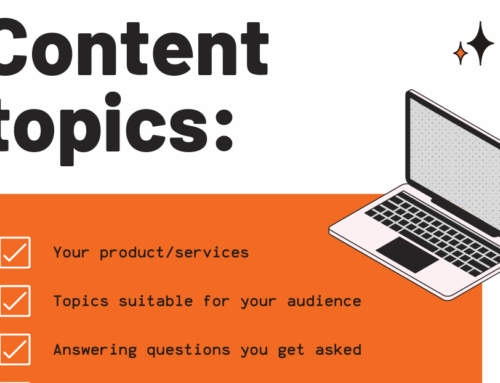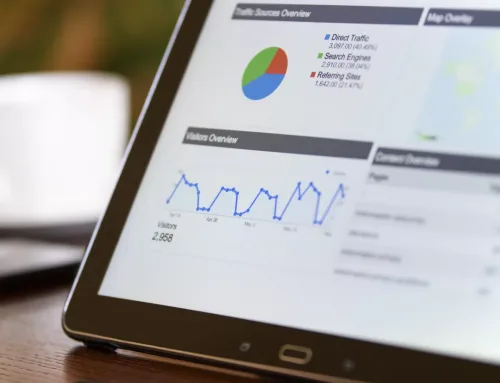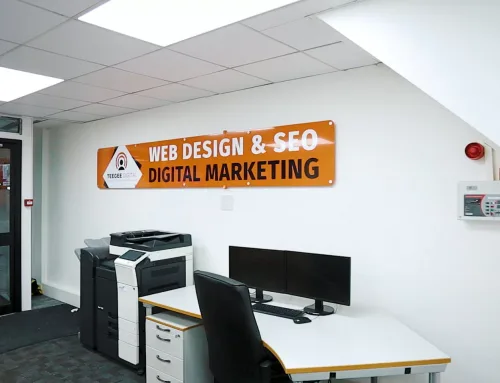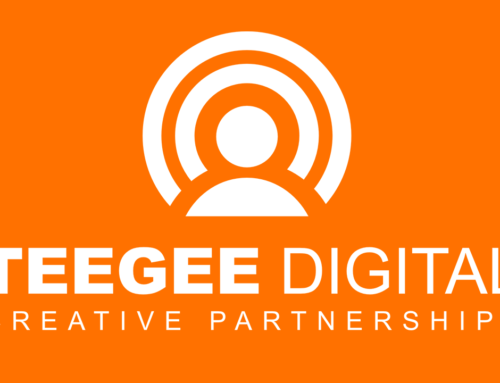Choosing the best social media for your brand is tricky. Even though social media can be a powerful tool to growing your business, appearing on every new platform might not be the best idea. If you’re a small business, you risk wasting your precious time and resources for minimal returns. Luckily, picking between 2-5 key social media platforms and focusing on crafting quality content that connects with your audience is more than enough to build a presence for your brand.
This blog post is designed to help you choose what social media platform is best for your small business, helping you choose the best platform to invest your time and resources for maximum ROI.
The Importance of Social Media for Small Businesses
It’s no secret that by not having social media, you’re locking yourself out of a potentially huge market – one that encompasses almost the entire globe. By 2026, it is estimated that over 5.5 billion people worldwide will be on social media (source: statistica.com). Everyone and their mums are on social media, literally. No longer just the domain of millennials and gen-z, social media accounts are held by people from all demographics, regardless of race, religion, gender, and age.
Social media isn’t optional anymore. With the average user spending over 2 hours per day scrolling on social media, you’re missing out on a huge opportunity to grab audience attention if you haven’t already got a strong social presence. Not to mention, it’s free.
Creating a social media account costs you nothing but your time, and the potential benefits include more customers and higher profits.
Top 5 Social Media Platforms Every Business Should Consider
The social media world is dominated by a handful of giants of the likes of Facebook, Instagram, LinkedIn and YouTube. These platforms boast billions of users daily – almost everyone has an account on at least one of these top platforms, but this can be a double-edged sword. With a bigger audience there’s more chances to reach more people, but these platforms are often oversaturated with content which can make it tough to stand out. If you want to be seen, you need to choose your platforms wisely and match your content to the existing audiences of the app.
But who are the top social media competitors?
Facebook is the cornerstone of marketing strategy for a lot of small businesses, especially ones offering local services. With local community pages and a range of tools for connecting to local audiences, Facebook is exceptionally good at helping you reach customers near to you who have high conversion chances – Facebook gives you the opportunity to form meaningful connection directly with the consumer.
Its sophisticated advertising platform allows precise targeting by location, demographics, interests, and behaviours, making it invaluable for reaching specific customer segments.
Best for: Local services, event promotion, community building, detailed audience targeting.
Content that works: Educational posts that solve customer problems, authentic customer testimonials, behind-the-scenes content, and direct audience interaction.
Businesses that thrive: Restaurants/take-aways, home services like plumbers and roofers, fitness studios promoting classes and events, real estate agents showcasing local properties, small independent retailers.
Facebook’s younger sister, the image-based platform was independently owned until 2012 when it was bought out by Meta for $1 billion. As of September 2025, Instagram is estimated to have 3 billion monthly users globally (according to CNBC) representing a huge potential market for your brand.
Instagram is entirely image and video based, meaning content that makes a big visual impact performs well. Aspirational marketing dominates Instagram; customers need to see what you’ve got and want it. Think clean, professional, curated, envy inducing aesthetics.
With features designed specifically for shopping, Instagram is about more than just pretty pictures, it’s a chance to drive product sales directly in your posts using the product tagging features. When it comes to discovery, Instagram has a whole array of powerful tools you can use to drive awareness and sales for your brand.
Best for: Highly visual storytelling, aesthetic product showcases, lifestyle content.
Content that works: High quality product photography, behind the scenes content (use for stories), user-generated content and client testimonials, high visual impact before and after pictures.
Businesses that thrive: Travel brands (think palm trees and blue seas), fashion brands or jewellery, beauty and aesthetics, interior design, restaurants and bakeries showing delicious dishes.
YouTube
Owned by Google, the video-based giant is a unique outlier on this list of top social platforms because it’s not just a social media platform. With a focus on more long-form content, YouTube doubles as entertainment and education. Success on YouTube depends on more than just your content strategy, it’s about SEO. YouTube is fully integrated into the search engine, allowing Google to pull featured video snippets to answer questions, creating huge opportunities for discovery. Whilst other social media platforms are making posts discoverable through Google searches, YouTube is still the king when it comes to leveraging SEO strategies in your social media posting.
Whilst somewhat lacking in the “social” aspect of social media, YouTube has a handful of community engagement features, allowing creators to post polls and ask questions. This is invaluable when gaining first-hand insights into what viewers really think about your content, creating a community-led experience that other platforms just don’t offer.
YouTube requires a lot more work compared to other platforms on this list – it can be slow to build engagement and difficult to get discovered – SEO strategy remains the most powerful way to get your YouTube videos found. The platform also works well in tandem with other social media accounts which can direct users to your YouTube account.
Best for: Educational videos, product demonstrations, authoritative content, SEO.
Content that works: Detailed how-to tutorials, product demonstrations and reviews, educational webinars/lectures/masterclasses.
Businesses that thrive: B2B services (such as marketing) explaining complex ideas, software companies creating product tutorials, craft/hobby stores, restaurants sharing recipes, home improvement contractors and DIYers
TikTok
Once the fastest growing social media platform, TikTok’s future has become uncertain following legal challenges in the US market in early 2025, resulting in changes to the app’s terms & conditions for users across the globe. Despite these concerns, TikTok remains hugely popular globally, with 24.8 million active users in the UK alone (according to Sprout Social). Users spend an average of 50 hours per month on the app – far more than most other platforms – thanks to its tailored For You Page algorithm that keeps content endlessly engaging.
For small businesses, TikTok offers unbeatable built-in shopping features. TikTok Shop allows direct sales without ever leaving the app, with product linking on posts and live shopping capabilities. However, some sellers report limited control over pricing and discounts. Choosing to use TikTok shop is a question of how much control over your business you’re willing to give to TikTok in exchange for the prospect of higher sales. You can always market on TikTok to drive traffic to your own website without using the shop feature.
TikTok’s core audience skews younger and female (18-30 demographic), making it ideal for beauty, fashion, food, and lifestyle brands. Unlike Instagram’s polished aesthetic, TikTok favours authentic, “rough around the edges” content that feels genuine and relatable – a reflection of a wider cultural shift for gen-z, who prefer real experiences over curated, fake-feeling content.
Best for: Product discovery, direct sales, reaching younger audiences, authentic brand storytelling
Content that works: Product demonstrations, tutorials, behind-the-scenes footage, user-generated content, day-in-the-life videos, honest reviews
Businesses that thrive: Beauty and skincare brands, fashion, handmade goods (jewellery, crafts), booksellers, restaurants and cafes, home improvement and DIY, pet products
The essential platform for B2B, LinkedIn is the place for any business that offers products or services to other businesses. Though not the most popular social media platform, LinkedIn has carved out a niche for itself as the place for professional discussion, networking, and keeping informed on your industry.
Whilst LinkedIn has introduced a video feature, text-based posts and slideshow style image carousels remain the mainstay of the platform. Users turn to LinkedIn for insight; unlike other platforms they’re not looking for easily consumable content, they want something intellectually stimulating that offers new perspectives and genuine advice that they can bring to their business.
Users often see LinkedIn as an extension of their job, so they may not spend hours scrolling LinkedIn of an evening like they would with a platform designed for entertainment, meaning you have more limited time to make an impact on LinkedIn users. Whilst regular posting is key to every platform, on LinkedIn especially, the key lies in the quality of your post. A few insightful posts every week is more than enough to maintain consistent growth on LinkedIn.
Best for: B2B networking, thought leadership, professional services marketing
Content that works: Industry insights and trend analysis, company milestone celebrations, professional achievement announcements, detailed case studies, and thought leadership articles.
Businesses that thrive: Consultancy services, professional services such as marketing/advertising/software/accountancy, and recruitment agencies connecting talent.
What Social Media Platforms Should You Choose?
Picking what social media platforms to appear on is a hard process. There’s no one-size-fits-all formula for every business.
Choose based on your audience, your product, and your services. You don’t need to have an account on every platform, dedicating your time to creating quality content for a couple of platforms is more likely to benefit your business than spreading yourself too thin.
If managing your business social media still seems daunting, you don’t have to do it alone. Our dedicated team are experienced in managing social media for small businesses, offering both organic and paid content strategies to help you get the best from your brand’s social media.
Talk to our team today or explore our social media packages.
Get in touch
We offer a unique approach to web design, SEO & Digital Marketing.
Our team are experts in every field of digital marketing so, you can have a stunning, professionally designed website that gets you sales & leads!
If you have any questions, or would like to discuss your project with us, please use the form below and we will get back to you – usually within a couple of a hours.






